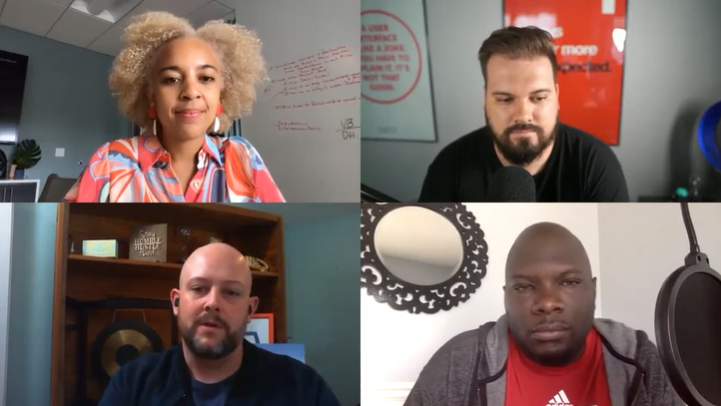Will your company’s workplace be “input-based,” or “output-based”?
That’s one of the primary questions companies are asking as a result of the worldwide shift toward remote or hybrid working arrangements.
The Powderkeg team connected with Clarence Bethea (Co-Founder and CEO, Upsie), Justin Mitchell (Founder and CEO, Yac), and Alex Steinman (Co-Founder and CEO, The Coven) for a panel discussion on how managers and leaders can navigate the newest changes to the workplace and help their teams thrive.

The privilege of choice. As a leader, do you want (as Justin says) “butts in seats for 8 hours a day,” or do you want the output that is needed for the role?
His advice is, “Workers should be able to work wherever they want, whenever they want, because they’re really good workers and they can get their stuff done.”
Crucial clarity. If you have a role that can’t be done remotely, be crystal clear on what you need to avoid crossed wires and miscommunication.
Alex noted that organizations that want to ensure equity and inclusion need to clearly communicate what they expect from workers and what kind of flexibility they’re truly offering.
“It’s important that your organization understands and is very clear about what it is that you want people to do. Otherwise we’re going to see women being slipped out of the workplace again or missing out on promotions because you said a role was flexible and it’s really not.”
The office of the future. With the shift to remote or hybrid working arrangements, what will become of traditional offices? These three CEOs believe companies can potentially use offices as flexible working spaces, celebration sites, or places for remote employees to connect and bond face-to-face.
Given the current commercial real estate market, Alex also added, “I think we’re going to need to find symbiotic relationships between companies to pair together and share [leases] so people can come in and convene frequently.”
Her company offers virtual personal and professional development programming as an added perk for employees. That training is an incentive for employees to come into the office and connect with one another, and it’s also a great recruitment and retention tool.
Learn more from Clarence, Justin, and Alex in this candid conversation.


